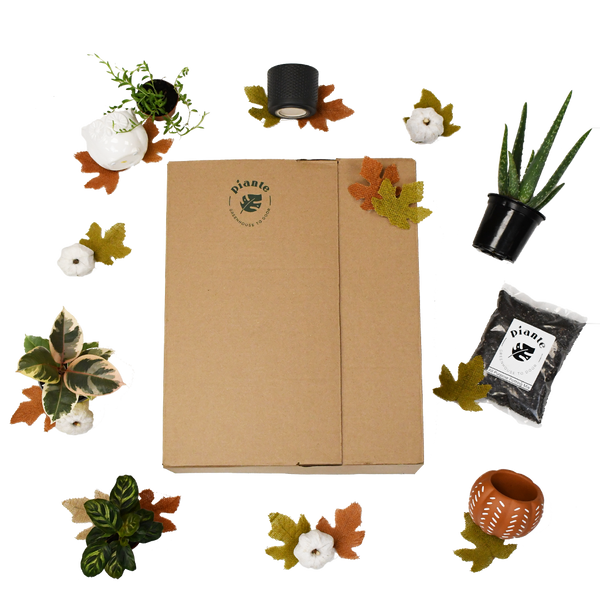Peperomia Ripple
 Sporting heart shaped leaves with deep puckering ripples, Peperomia caperata really stands out. Because of their succulent-like stems, these plants tend to be droopy drama queens when overwatered, but will quickly perk back up once their soil dries out. With colours varying from greens to reds and silvery-whites, you can always fit a Peperomia into your style.
Sporting heart shaped leaves with deep puckering ripples, Peperomia caperata really stands out. Because of their succulent-like stems, these plants tend to be droopy drama queens when overwatered, but will quickly perk back up once their soil dries out. With colours varying from greens to reds and silvery-whites, you can always fit a Peperomia into your style.
Plant Type
Tropical
Tropical plants grow naturally in tropical areas where the climate is hot and humid. Easy to grow indoors, these plants add an exotic flair to your home with a vivid display of striking blooms and attractive foliage.
Plant Feature
Pet-Friendly
These are the perfect plants to keep in your home, even if you have curious pets that chew on almost everything – including plants. They are safe and non-toxic, so you don’t have to worry about your plants poisoning your cats and dogs.
Kid-Friendly
Even the kids can enjoy growing and caring for these plants since they are easy to grow, safe, and non-toxic. Kid-friendly plants will surely help make your home nice-looking without having to worry about skin irritation, allergies, or plant poisoning.
Light Care
Medium Light
These plants need filtered or dappled sunlight. You would want to place them in a well-lit room with windows, but away from direct light. A sunny window with sheer curtains is also a good idea.
Water Care
Low - Medium
Plants with low to medium water requirements need water at least once a week. Water these plants when the soil feels dry to touch.
Fertilizer Care
Medium Fertilizer
Regular application of fertilizers will help these plants achieve their best performance and vigor. Applying moderate fertilizer to these plants is ideal.
Zones
11
Plant Care Tips
With corrugated leaves in a variety of colours, from reds to greens, Peperomia caperata are a standout houseplant. Due to their succulent-like leaves it is important to not overwater your Peperomia, as it may cause the leaves to wilt. Keep your plant in bright, indirect light, avoiding full sun.
Origin
Peperomia caperata is native to the jungles of South America, specifically Brazil.




